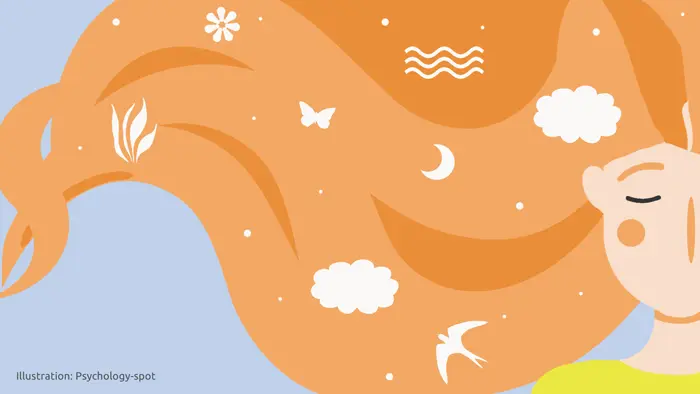
In our life, few things are so important as to make us lose sleep. And yet, immersed in the vertiginousness of everyday life, we turn the inconsequential into colossal concerns. We confuse the urgent with the important. We get angry over trivial matters that we will forget about next month. We lose our cool easily. We get irritated at the slightest setback and stressed at the slightest pressure.
In large part, this exaggerated emotional reactivity is due to taking things too personally. We are not capable of maintaining the necessary psychological distance to see what is happening to us in perspective. For this reason, one of the most important lessons and that will bring us the most calm in life is to take things more lightly – without becoming superficial.
Living lightly
We all have a natural tendency to want to control what happens in our area of action. Through control we try to satisfy our need for security. However, since the past cannot be changed and the future is elusive, this controlling attitude only breeds anxiety and worry, adding to the drudgery of living.
In fact, in an increasingly gloomy world, contaminated by catastrophes and hardships, subjected to the constant bombardment of disturbing news, toxic pessimism and unbridled anger, we urgently need to learn to flow and let go of ballast to balance our inner world.
Italo Calvino had the antidote: living lightly. He advised us: “Take life lightly, lightness is not superficiality, but flying over things from above, without heavy stones in the heart.”
Lightness consists in “removing weight” from the representation of reality. Learning to give each thing its rightful place in our life but, above all, it consists in not accumulating other people’s frustrations, worries and responsibilities.
Taking things lightly does not mean being superficial, but rather stop taking everything in a too serious way. Stop making storms in a teacup. Forget about the drama. Assume that not everything is personal. Let the anger, sadness or frustration flow until they end up diluting.
Living lightly also means making peace with ourselves. Stop being our most severe judge to start treating us with greater kindness. It consists of forgiving ourselves. Free ourselves from those emotional backpacks that we sometimes force ourselves to carry. Lightness is relief and self-care in a world that forces us to be permanently in tension and available to others.
Living lightly means being able to dilate time. Interrupt the flow of life that leaves us breathless. Recover the time that an inner dimension occupies, turning it into food for the soul and the heart. Pay more attention to ourselves, but without taking ourselves too seriously, adopting a playful and curious position towards ourselves.
Living lightly also means regaining possession of our “self” in order to fly higher, with that healthy detachment that allows us to go through adversity unscathed. It is the ability to recognize the subtle and the vital even in the face of pain in order to reposition ourselves in the essential. It is rediscovering the taste for wonder and laughter, the simple and even the banal.
An exercise to learn to take things lightly and let go of ballast
A very simple exercise to begin to get rid of the weight that blocks us is to imagine or draw a black bag. That sack represents all the things we carry, all those worries, responsibilities, fears, insecurities, frustrations…
We must ask ourselves: What are the things that weigh us down the most in life? Why are we loading them? What can we get out of that bag to improve our life, be happier or feel more satisfied?
Next, we can write a list separating what is ours from those things that we can send back, such as other people’s expectations, excessive demands from the outside world, and social pressures.
In this way, we will be able to free ourselves from an emotional baggage that, far from being useful, hinders and unbalances us. We may not become feathers, but we can live lighter. And taking off that heavy weight can only be healthy for the body and mind.



